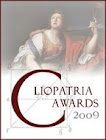The September 24 issue of the NYRB contains a review essay on the limits of the "social construction of reality" school. In "Why Should You Believe It?" John R. Searle writes:
Relativism has a long history in our intellectual culture, and takes several different forms, such as relativism about knowledge and truth, ethical values, aesthetic quality, and cultural norms, to mention a few. Paul Boghossian's book concentrates on the first of these. The basic idea he opposes is that claims to objective truth and knowledge, for example the claim that hydrogen atoms have one electron, are in fact only valid relative to a set of cultural attitudes, or to some other subjective way of perceiving the world. Furthermore, according to relativism, inconsistent claims may have what he calls 'equal validity.' There can be no universally valid knowledge claims.
His insightful critique takes on some of the more woolly notions of social constructedness. "The currently most influential form of relativism," Searle notes, "is social constructivism, which [Paul A.] Boghossian defines as follows: "A fact is socially constructed if and only if it is necessarily true that it could only have obtained through the contingent actions of a social group."
One particularly Rococo application of constructivism that Searle points out made me laugh. In 1998 Bruno Latour famously argued that the Egyptian pharaoh Ramses II could not have had tuberculosis, as recent researchers claimed, because the tuberculosis bacillus was only discovered by Robert Koch in 1882. Such conclusions make it seem like we live in a world woven completely from our wild imaginations. To what degree do individuals or groups actually make reality?
Social constructivism along with a focus on agency has had a profound influence on the history profession over the past two decades. And in my area of specialization, American religious history, it looms large. But it is not always an accurate or helpful lens through which to view the past. Dismissing critics of the theory as hapless modernists is not the same thing as engaging that criticism. I'll stop right there before I get too specific.
I would like to see what deep history scholars and those who work at the intersection of biology and history think about social constructivism.






1 comment:
Thanks for directing us to this piece Randall. I recently attended a seminar led by a sophisticated, leading early American historian. She noted (with what seemed to me dismay), how resistant her entering graduate students were to the idea that human beings possessed common characteristics (across time, especially). I believe she said that they would accept the universality of pain, but not empathy.
Post a Comment